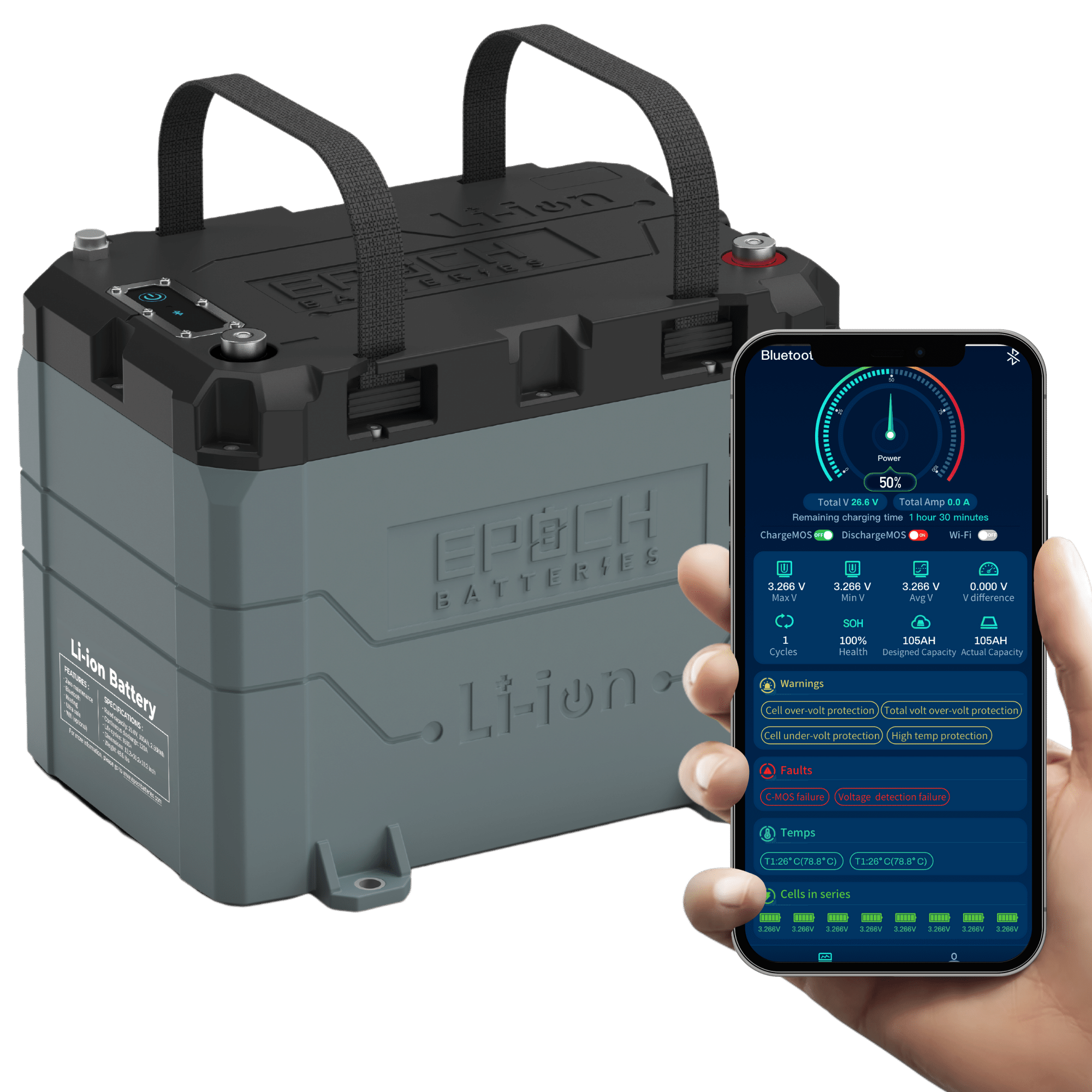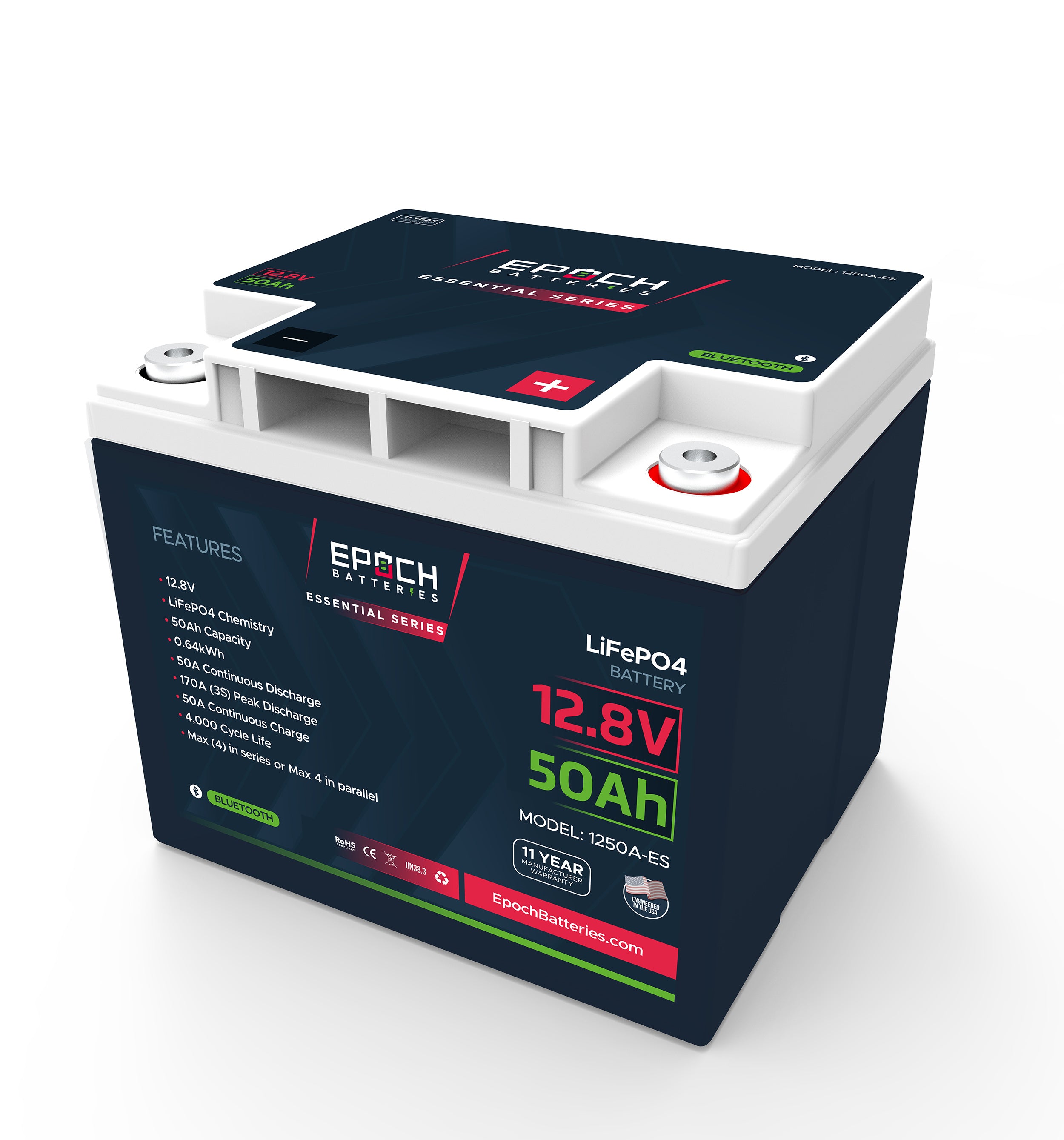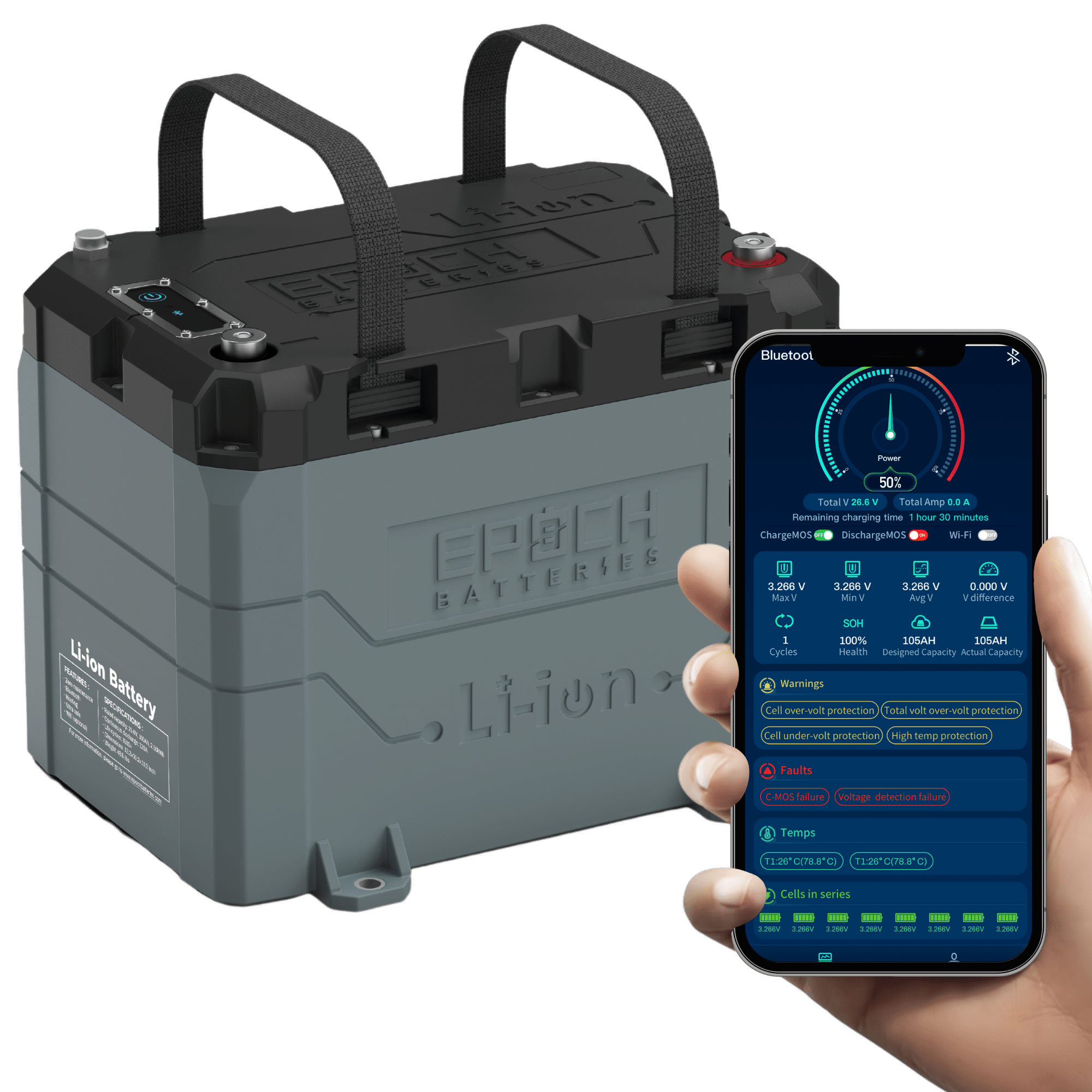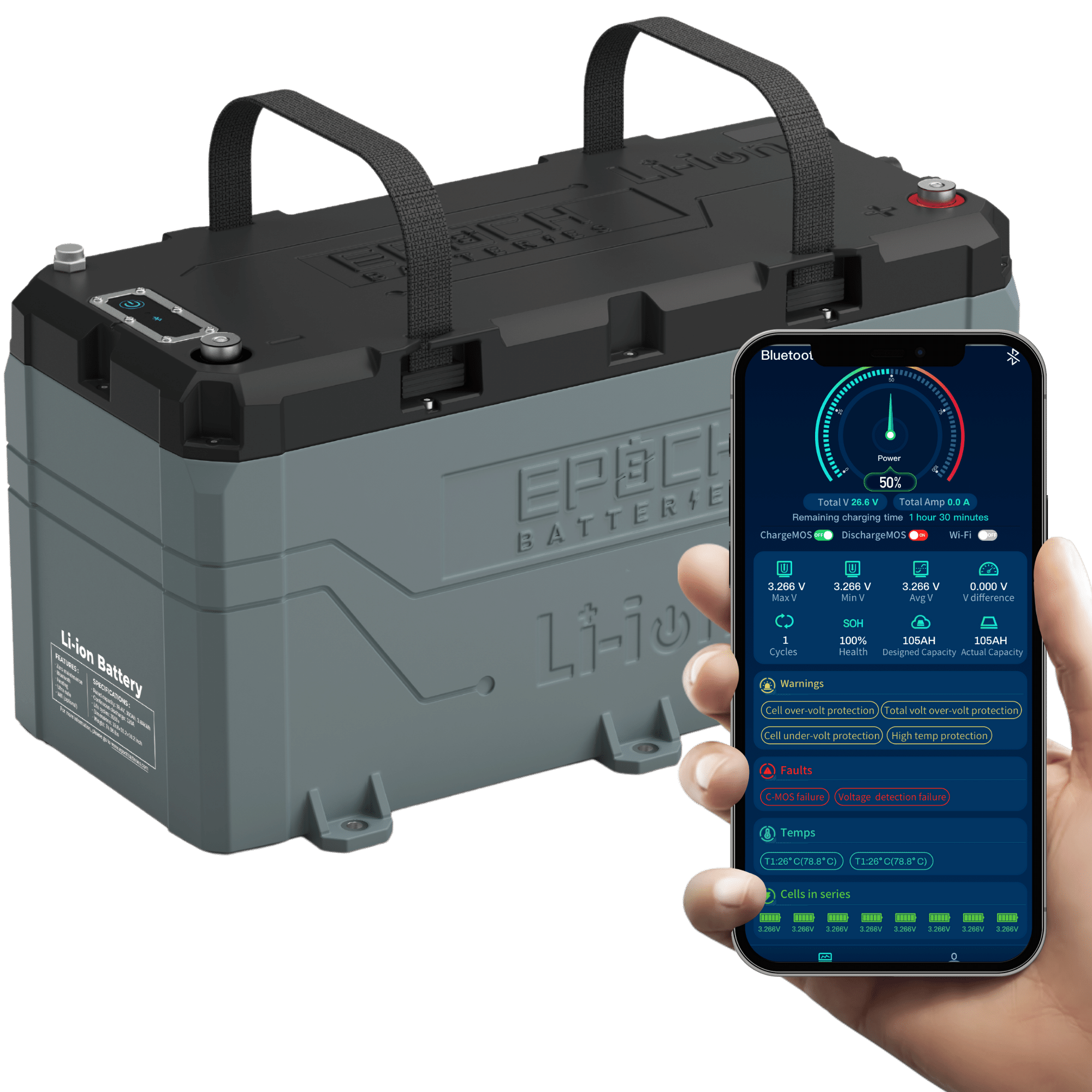Filters
Lithium Marine Batteries - Deep Cycle & Starter Batteries for Boats
-
Deep Cycle Marine Batteries
-
Trolling Motor Batteries
Lithium iron phosphate (LiFePO4 or LFP) batteries have become increasingly popular in the marine industry due to their many advantages over traditional lead-acid batteries and even over other lithium-ion batteries.
One of the main advantages of LFP batteries is their excellent safety performance. The use of lithium iron phosphate as the cathode material makes LFP batteries much more stable and less prone to overheating and catching fire compared to other lithium-ion batteries. This is particularly important in marine applications where safety is a top priority.
Another advantage of LFP batteries is their long cycle life. LFP batteries can be cycled for thousands of times with minimal capacity loss, which means that they can last for much longer than traditional lead-acid batteries or other lithium-ion batteries. This is especially beneficial for marine applications where the batteries may need to be used frequently and for long periods of time.
LFP batteries also have a higher temperature tolerance than other lithium-ion batteries, which means they can withstand higher temperatures without performance degradation. This is especially important in marine applications where the batteries may be exposed to high temperatures and humidity.
In addition, LFP batteries have a lower self-discharge rate compared to other lithium-ion batteries, which means that they can be stored for longer periods of time without losing their charge. This is beneficial for marine applications where the batteries may not be used for extended periods.
LFP batteries also have a very high energy density, which means that they can store more energy in a smaller space, which is particularly useful for marine applications where space is often limited. This high energy density also allows for a smaller and lighter battery pack to store the same amount of energy as traditional lead-acid batteries.
In summary, LFP batteries have many advantages over traditional lead-acid batteries and other lithium-ion batteries for marine applications. They are much safer, have a longer cycle life, higher temperature tolerance, lower self-discharge rate, and higher energy density, which makes them more efficient, durable, and reliable for marine use. These factors make LFP batteries a great choice for marine applications such as electric boats, yachts, and even ships.




